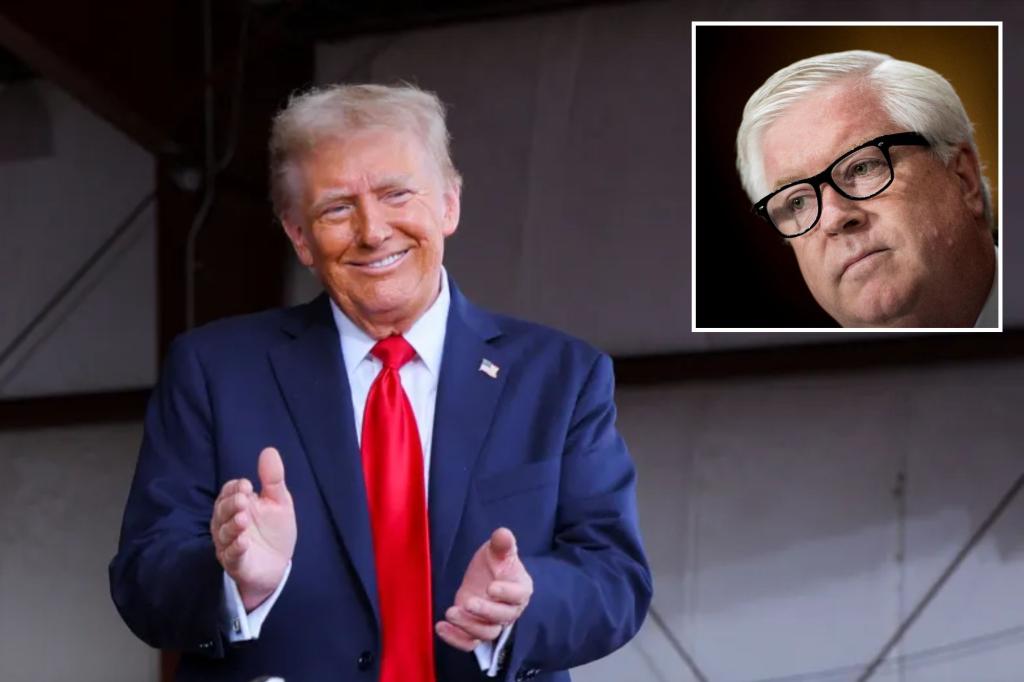President-elect Donald Trump’s recent ambassadorial nominations reflect a diverse blend of experience and backgrounds, spanning business, diplomacy, entertainment, and real estate. This accelerated pace of appointments contrasts starkly with his first term, signaling a more proactive approach to staffing his potential future administration. While some nominees possess traditional diplomatic experience, others bring unique skillsets from their respective fields, potentially reshaping how the United States engages with its global partners. The selections also underscore Trump’s penchant for rewarding loyalty and personal connections, with several nominees having close ties to his family or inner circle.
Among the five ambassadorships announced, George Edward Glass’s nomination to Japan stands out, given the country’s strategic importance in the Asia-Pacific region. Glass, a former US ambassador to Portugal with expertise in technology investment, faces the weighty task of navigating complex geopolitical dynamics and strengthening the US-Japan alliance. His confirmation hearing will likely focus on his experience in international relations and his understanding of the delicate balance required in the region. This appointment follows the tenure of Rahm Emanuel, a seasoned political figure whose potential move to the Democratic National Committee has sparked political speculation.
Leah Francis Campos’s selection as ambassador to the Dominican Republic highlights the intertwining of personal connections and political appointments. As the sister-in-law of Transportation Secretary designee Sean Duffy and sister of a Fox News personality, Campos’s nomination raises questions about the role of familial ties in shaping Trump’s foreign policy team. While she has prior experience as a CIA case officer and advisor on the House Foreign Affairs Committee, scrutiny of her qualifications and potential conflicts of interest is anticipated during the confirmation process. The Dominican Republic, a crucial partner in the Caribbean, requires an ambassador with a deep understanding of regional complexities and the ability to navigate sensitive diplomatic issues.
Stacey Feinberg’s nomination to Luxembourg brings a distinct flavor to the ambassadorial roster. Her background in Broadway production and motivational speaking, coupled with her leadership in the Women Founders Network, represents a departure from traditional diplomatic backgrounds. While her experience in fostering collaboration and communication may prove valuable in the diplomatic arena, her lack of direct foreign policy experience may draw scrutiny. The role of ambassador to Luxembourg, while less high-profile than some other postings, still requires adept navigation of international relations and representation of US interests within the European Union.
Arthur Graham Fisher’s nomination for the ambassadorship to Austria showcases Trump’s tendency to reward business acumen with diplomatic roles. Fisher, a prominent real estate broker in North Carolina with a record of success in the industry, enters the diplomatic field with limited experience in international affairs. His nomination underscores Trump’s preference for individuals with business backgrounds, potentially prioritizing economic diplomacy over traditional foreign policy expertise. The confirmation process will likely focus on Fisher’s understanding of Austrian politics and his ability to represent US interests in the heart of Europe.
Lou Rinaldi’s nomination to Uruguay emphasizes Trump’s focus on personal relationships in shaping his administration. As a longtime friend and fellow golfer, Rinaldi’s appointment reflects the value Trump places on loyalty and personal connections. While Rinaldi’s Uruguayan upbringing provides a unique cultural understanding, his lack of formal diplomatic experience may raise questions about his preparedness for the role. The Senate confirmation hearings will likely probe Rinaldi’s qualifications and his ability to represent US interests effectively in Uruguay.
Beyond these five nominations, Trump’s ambassadorial picks include Elise Stefanik, a prominent House Republican chosen for the crucial role of US ambassador to the United Nations. Stefanik’s selection underscores the importance of political experience and loyalty within Trump’s inner circle. Her nomination also signifies a potential shift in US foreign policy at the UN, given her strong conservative credentials and alignment with Trump’s “America First” agenda. The confirmation process will likely focus on her understanding of complex global issues and her ability to navigate the multilateral arena.
The recent announcement of Kimberly Guilfoyle, Donald Trump Jr.’s former fiancée, as the potential ambassador to Greece further underscores the prevalence of personal connections in Trump’s ambassadorial choices. Guilfoyle, a former Fox News personality and political commentator, lacks traditional diplomatic experience, raising concerns about the role of personal relationships in shaping foreign policy appointments. Her nomination is likely to draw significant attention during the confirmation process, focusing on her qualifications and potential conflicts of interest.
Taken together, Trump’s ambassadorial nominations reflect a blend of traditional diplomatic experience, business acumen, and personal connections. While some nominees possess significant experience in international affairs, others bring unique skillsets from diverse backgrounds, potentially signaling a shift in how the United States engages with the world. The Senate confirmation process will play a crucial role in scrutinizing these nominees, ensuring they possess the necessary qualifications and experience to represent US interests effectively on the global stage. This wave of appointments provides insights into Trump’s foreign policy priorities and his approach to staffing key diplomatic positions, potentially shaping the direction of US foreign relations in the years to come.

